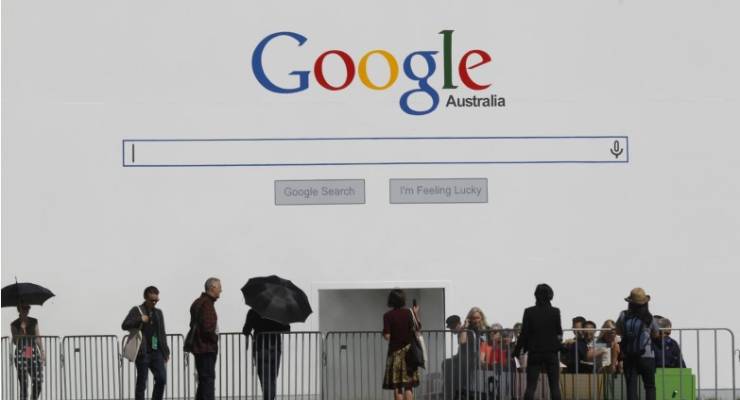
Google’s soft and cuddly “Here to Help” TV advertising campaign seems to be talking to you, but you’ve probably already worked out that you’re not really the target. Not many see the ad and think: “Hmm, Google. Never heard of it, must give it a go.”
Rather, the medium is the audience of the message. The ads — and the payments to broadcasters for the ads — are part of a sophisticated, global campaign to tamp down media industry concerns about the damage the Google model has done to their traditional business.
The ads come as traditional media companies have been ramping up attacks this week, responding to a report on digital platforms released by the ACCC in late July. But like old generals everywhere, they’re busy fighting the last war.
News Corp’s Michael Miller says Google is based on “unfair commercial exploitation of other people’s content”. It’s taking a “free ride off the back of our content investment” adds Seven’s James Warburton. The relationship is not commercially sustainable for publishers and broadcasters, says Nine.
The anger reflects the loss of both dollars and attention. Where media companies were once giants of power and influence, Google now dominates. According to the ACCC report, Australians spend 20.5% of their time online in one of Google’s products. It’s collected an estimated $4 billion out of the $9 billion Australian advertisers spend online.
Each side is living in parallel universes to one another. In the Google-verse, the company has simply built a better advertising mousetrap for both advertisers and consumers. Shrug. That’s just how capitalism works. In the media-verse, the newcomer has stolen the ads that rightfully belonged to the news media — and, worse, they’ve done it off the back of the content that traditional media created.
Depends where you’re standing. In a newsroom, you know that somewhere between 30% and 40% of people viewing your content get there via online search. That’s a lot, particularly when your business model depends on monetising those clicks through advertising.
On the Google campus, you see that only 2.3% of Australian time online is with the traditional masthead or broadcast news sites. That’s not much..
Google has attempted to bridge the gap between universes with money, including grants such as the Google News Initiative (disclosure: Crikey has received GNI funding) and outreach and support through dedicated news support staff, including in Australia. They’ve designed news-friendly products such as Accelerated Mobile Pages and recently announced they were teaching their algorithm to prioritise original reporting.
Monday Note’s Frederic Filloux has estimated that, through these programs, Google has put over half a billion US dollars (and billions of page views) into the news industry over the past six years. That’s both a lot and a drop in the bucket compared to Google’s global revenues and the money the internet has cost traditional media.
This week’s media responses to the ACCC suggests Google’s white hat isn’t impressing the traditional players. Meanwhile, in Europe, Google is putting on its black hat to muscle up against new French copyright laws that require search engines to pay for those 10-20 word summaries in search results.
Last week, Google responded that they will drop these snippets (keeping only the headline) unless the publisher says it’s OK to keep it. French publishers now have to decide to either waive their rights or risk losing much of their Google traffic.
The French publishers will be conscious of the time Spanish publishers went to war with Google: the search engine stripped news out of Spanish search results and readership plummeted.
But the use of search to maximise page views and drive advertising dollars is already a demonstrably failed strategy. News doesn’t scale to deliver the eyeballs most advertisers are after. As publishers pivot to reader revenues through subscriptions, the casual readers delivered by search are no longer the sort of engaged and paying readers that news media needs.
If Google doesn’t need news publishers, perhaps publishers need to learn that they don’t need Google.








Crikey is committed to hosting lively discussions. Help us keep the conversation useful, interesting and welcoming. We aim to publish comments quickly in the interest of promoting robust conversation, but we’re a small team and we deploy filters to protect against legal risk. Occasionally your comment may be held up while we review, but we’re working as fast as we can to keep the conversation rolling.
The Crikey comment section is members-only content. Please subscribe to leave a comment.
The Crikey comment section is members-only content. Please login to leave a comment.